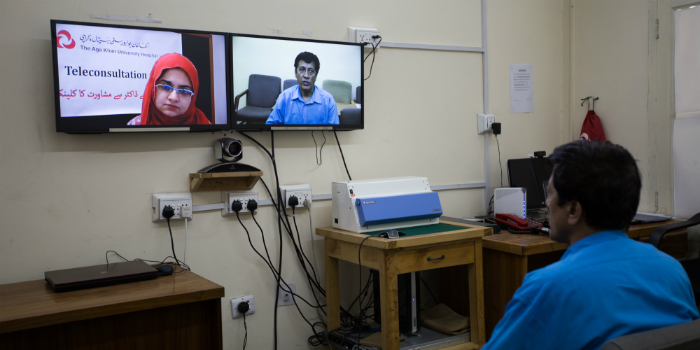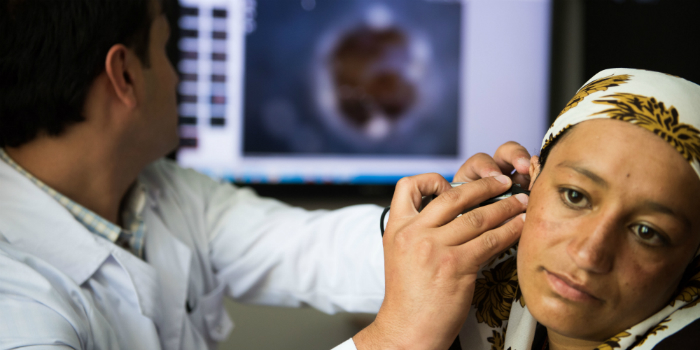When Mavjuda required an ear exam, she paid a visit to Dr. Akmal Abdulmajidov in the small town of Khorog, Tajikistan. If it hadn’t been for the clinic’s eHealth system, Mavjuda could not have received the care she needed. The otoscope used to examine her ear was plugged into the system, and Dr. Abdulmajidov was able to connect and communicate with an Ear, Nose and Throat Specialist at the Kabul French Medical Institute for Children, in Kabul, Afghanistan.
In the past decade, strengthening health care services in developing countries has been bolstered by technology. A big part of those advancements has been the result of eHealth, which utilizes communications technologies to create better access to services and provides opportunities for knowledge sharing among healthcare professionals.
These advancements are saving time, money, and most importantly, lives. Rural communities in particular are benefiting as eHealth connects them to larger health centres.
“From 2013 to 2015 in Afghanistan, Tajikistan and Pakistan, we had an investment of $600,000 in eHealth. And we were able to save $3.9 million to beneficiaries in cost savings,” explained Saleem Sayani, director of the eHealth Resource Centre in Karachi. Mr. Sayani was in Ottawa in March for the launch of the World Bank’s 2016 World Development Report, hosted by Aga Khan Foundation Canada.
There are several fronts that technology is being used to reduce costs and stresses on patients in remote communities. For example the eHealth Resource Centre has developed tele-consultations between staff at the Aga Khan Hospital in Karachi and the Gilgit Medical Centre in Northern Pakistan.
Better Options for Rural Residents
For rural communities with only one doctor, this means greater access to the knowledge of a broader community of healthcare professionals. And it cuts down on travel costs: patients who once had to travel from their remote communities to larger hospitals can now often be diagnosed and treated without leaving their home towns.

That translates into a lot of saved time.
“The amount of time we were able to save for our beneficiaries is tremendous,” Saleem Sayani says. “It is 70 years of time that we were able to save in two years for these beneficiaries in these three countries. This is the impact of $600,000. Saving $3.9 million in cost avoidance and saving about 70 years in time.”
For patients who simply cannot afford to travel, these services can be life-saving.
The next stage is the creation of a “superhub” that will connect the Aga Khan University Hospital in Karachi, Pakistan with health facilities in Afghanistan, Tajikistan and other regions of Pakistan. This will provide multiple levels of consultation and e-health at a very low cost.
“We have created an innovation lab to create low-cost solutions for low and middle-income countries to provide better healthcare access,” explains Sayani. “So we will be working in different areas of robotics and also developing different tools to provide better access.”
Want to learn more about health initiatives in the developing world? Discover these resources:
- Achieving maternal and child health gains in Afghanistan: a Countdown to 2015 country case study
- Digital Dividends: Launch of the 2016 World Development Report (webcast featuring Saleem Sayani)
Financial support:
![]()

